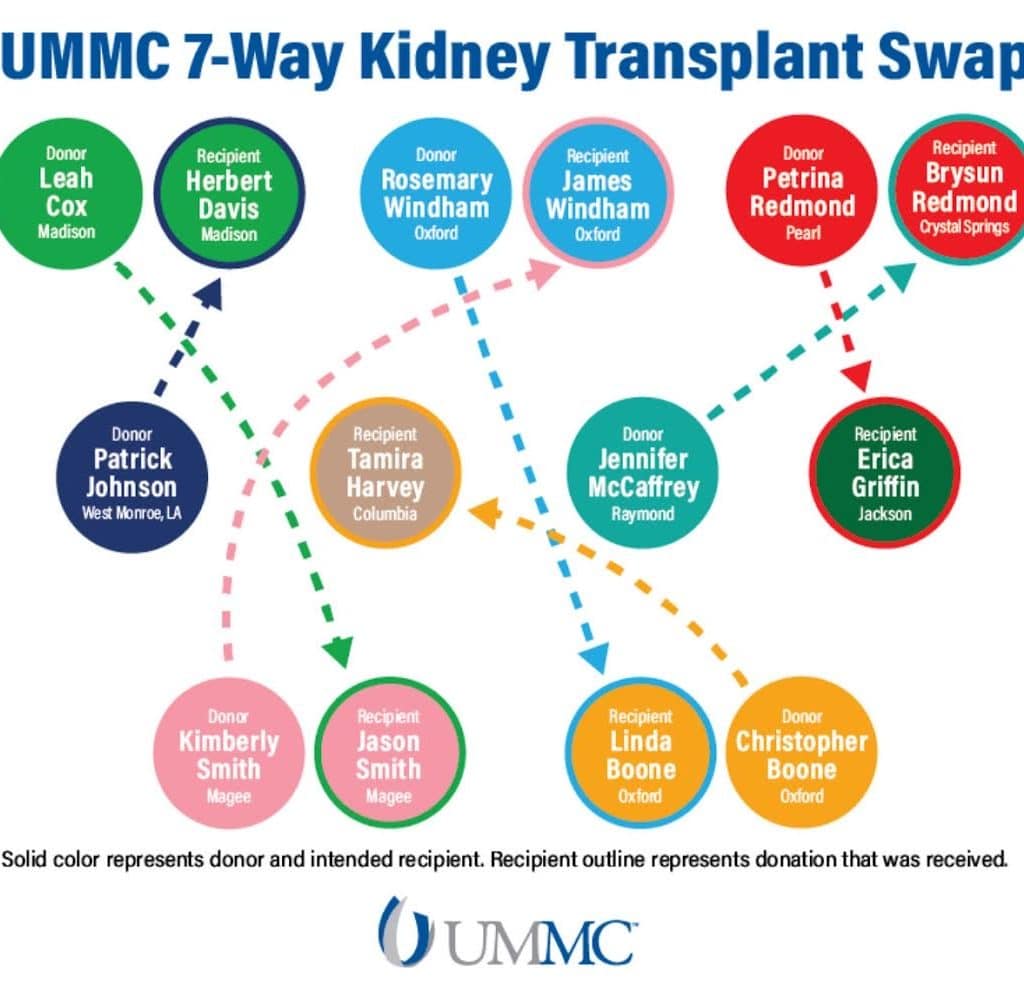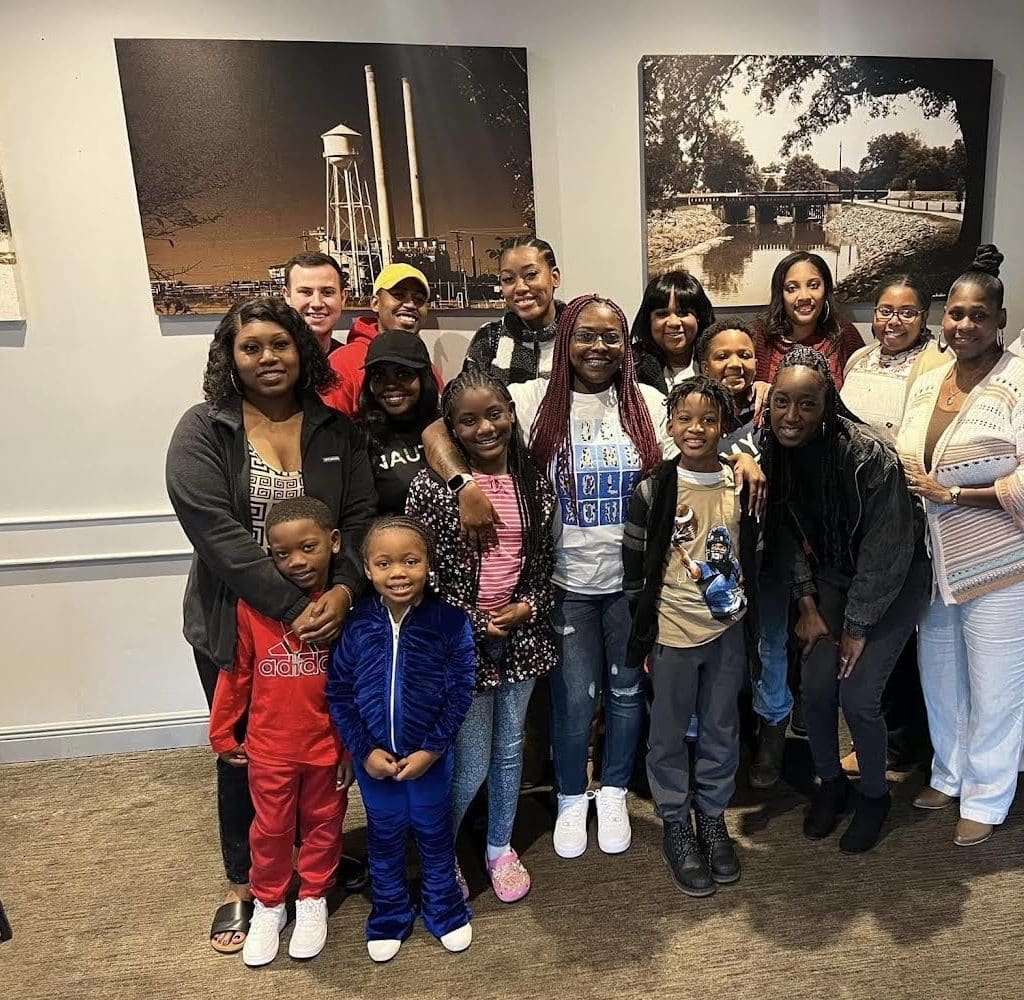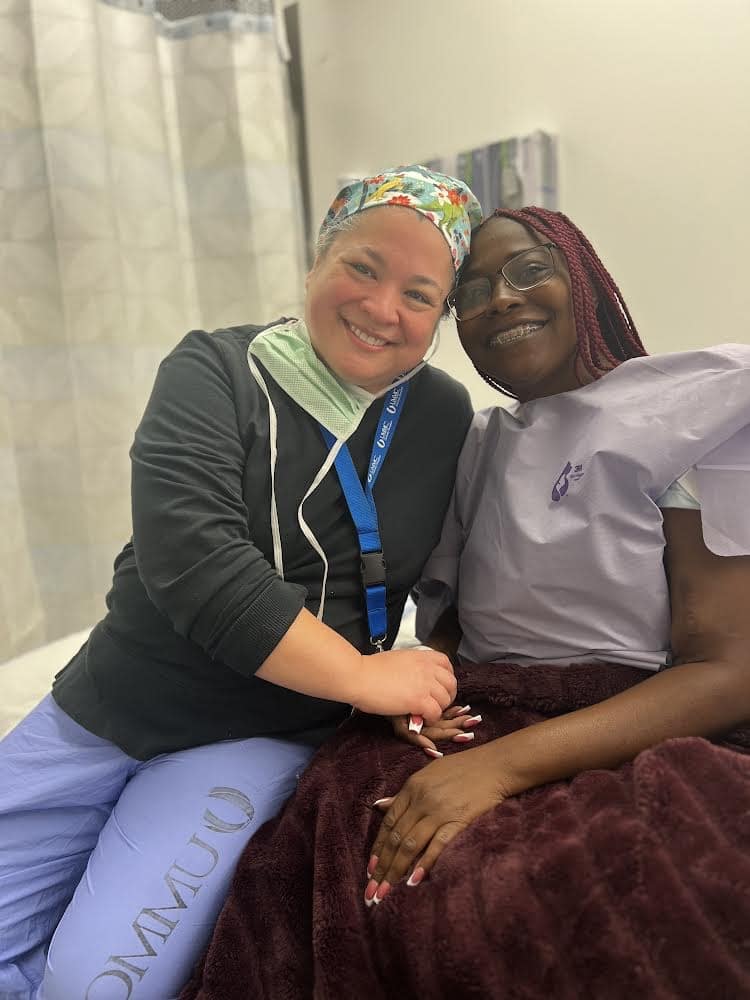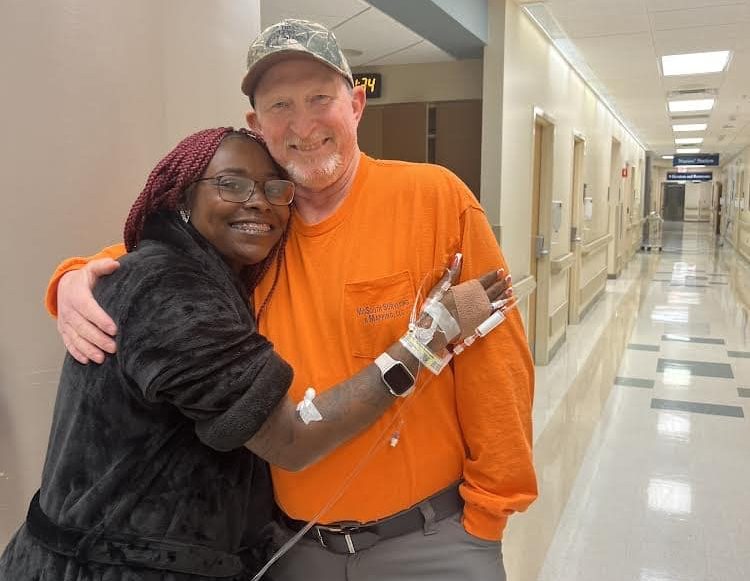What would you do if you found out you were in dire need of a kidney transplant at the age of twenty-six? Would you feel anxious? Confused? Terrified?
Tamira Harvey, fondly known as “Granny,” has lived through this grueling experience. For two long years, she battled with kidney disease. In our interview, she details her journey to getting a kidney transplant, the impact of having this disease and procedure, and how this process has given her a newfound sense of energy, faith, and gratitude.
14 people. 7 kidneys swapped. History made.
Amongst thirteen others, Tamira was part of a seven-way kidney swap — making history as the largest kidney swap in the state of Mississippi at UMMC. This swap included a total of fourteen people. Some were anxious, others anticipating, but all thankful to have either helped a person or to be helped by one of the compassionate people who so generously gave of themselves.

Just a regular evening
It all started in the seventh grade. Tamira, a former junior high and high school athlete at West Marion, went to the doctor for her routine physical. However, she did not know that the results she would receive that day would alter the trajectory of her life. Soon after, she was diagnosed with FSGS.
What is FSGS?
FSGS, short for focal segmental glomerulosclerosis, is a rare kidney disease. According to the American Kidney Fund, physicians diagnose approximately seven in every 1 million people per year. Although there is usually no single reason why one gets FSGS, there are some health issues that are thought to possibly cause FSGS, including diabetes, lupus, undiagnosed or overlooked kidney issues since birth, amongst other health conditions.
A new normal
For years, Tamira lived a normal life — playing sports, traveling the world, and spending quality time with family and friends. After years of this kidney disease laying dormant, her life was on the brink of a new normal. One day, as she was getting ready to go inside her job, in Bogalusa, La., she started feeling incredibly ill. “God wouldn’t let me go in,” she recounts. “I had a panic attack in my car.” After speaking with her mother and being convinced to leave work and come home, Tamira was soon rushed into the hospital, where she would receive more dreadful news.

Not long after being rushed to the hospital, she was met with hospital staff who prepared her for blood transfusions. Tamira needed four transfusions that day and found out she was in ESRD (End Stage Renal Disease), meaning that her kidneys were failing. “They said if I waited two more weeks to go to the doctor, I would have died,” Tamira remarked. Following her admission into the hospital, she was told that she needed to immediately start dialysis and that she would need a kidney transplant.
Dialysis
As you can imagine, being told you’ll need to go on dialysis and have a kidney transplant is quite a bit to process. This news was not only startling but gut-wrenching to Tamira. However, she did not start dialysis immediately. “I didn’t know what to think.” She expressed feeling a shy sense of denial about this predicament she’d been thrust into. After a few days of waiting, Tamira decided to proceed with dialysis, which she expressed was “terrifying” before she learned about the dialysis machine. “I felt like I was going to die. I guess it was just anxiety,” she remarked. “I asked the nurses to teach me everything about the dialysis machines I needed to know.”
The start of a new beginning
After going through exhausting dialysis sessions three times a week, tears, and hopelessness, Tamira received the best news of her life. At 7:37 a.m., she received a life-altering call from UMMC, who delivered the great news — they found a living donor, and she’d be getting a kidney transplant! “I went crazy,” Tamira said as her eyes lit up with excitement recalling this moment. “My sister had to take the phone and speak for me. I just fell to my knees and thanked God!”
Tamira’s donor was a man who was not a match for his wife. Selflessly, he decided to donate his kidney to Tamira. After the two met, they hugged, cried, and got to know each other a bit more.
What would Tamira tell others in her shoes?
Tamira encourages anyone who is dealing with this to be their own advocate. “I’ve had to report some staff for not doing what they’re supposed to do.” Although she’s had many trying times, she is grateful for the impeccable staff at UMMC who simply loved her and were a great source of support during this challenging period.

Where is Tamira today?
Currently, “Granny” is recovering and living life to the fullest. Through this process, she has gained a newfound appreciation for life. She credits her family and friends for being supportive. She specifically acknowledges that her mother “did everything but go through the process herself.” The unwavering support from her mother, siblings, friends, and community has helped make this process bearable. Above all, Tamira expresses that God has given her the strength and tenacity she needs to continue this journey.




